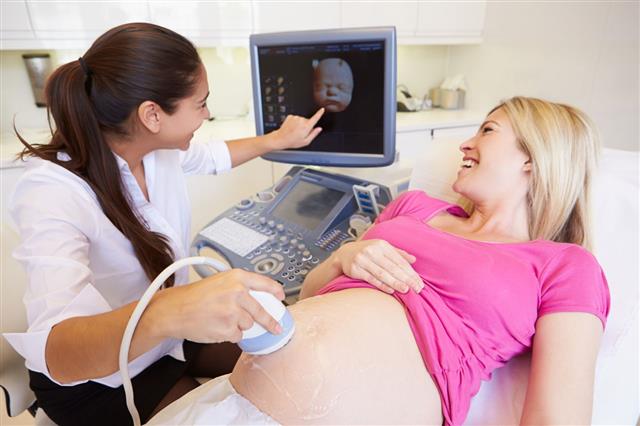
What is the reason behind passing blood clots during pregnancy? Blood clots in pregnancy can be a normal sign or can be an indication of certain health conditions that may require immediate medical attention. Read on to know more…
Pregnancy leads to a lot of changes in a woman’s body. These changes include both internal and external changes! As far as bleeding during pregnancy is concerned, most of the women experience spotting during the early stages of pregnancy. This is considered to be a normal phenomenon as bleeding is the result of the implantation of the embryo in the wall of the uterus. In fact, you may experience this bleeding within the first 6-14 days after conceiving and there are chances that you might mistake it with your periods, if you are not keeping a track of your dates. So, if you have experienced bleeding in the first trimester, there is nothing to worry about for most parts, however you must address this issue to your healthcare specialist just to be on the safer side. In fact there are many women who experience mild bleeding and blood clots during pregnancy but with proper care and caution, end up giving birth to a healthy baby. So bleeding and blood clots doesn’t necessarily has to mean a threat to the pregnancy, although you must be concerned and speak to your doctor about it.
What Does Passing Blood Clots During Pregnancy Mean?
Well, experiencing too much of bleeding, and passing blood clots in urine, or otherwise, can also be an indication of threatened miscarriage. Experts believe that the first 8-12 weeks of pregnancy are considered to be the most risky when it comes to a miscarriage. A threatened miscarriage, in medical terms, is referred to as the condition wherein bleeding and blood clots occur during early pregnancy and there are chances for the woman to miscarry because the opening of the womb (cervix) tends to close tightly. However, an early detection can make things better and you can give birth to a healthy baby. Bleeding and blood clots may also be experienced in case of ectopic pregnancy wherein the fertilized egg starts developing outside the uterus.
Speaking technically, too much of bleeding (not spotting), and passing blood clots while pregnant, is normally associated with miscarriage, especially when it happens during late pregnancy. The main symptoms of a miscarriage is when you see proper bleeding from your vagina, accompanied by blood clots in the urine, or a brownish discharge. Most women will also experience pain and cramps in the abdomen while passing blood clots. If this happens, you must visit your healthcare specialist without even wasting a second! This is because in case of a miscarriage, blood clots are nothing but the broken tissues of the embryo. Therefore you must make sure that your baby is safe and that the blood clots are not an indication of an unfortunate event.
To sum up the entire discussion, if you have been experiencing abdominal cramps, pain in the back, genital areas, hips and thighs along with constant vaginal bleeding and blood clots, then there are chances that your pregnancy is at stake. But then, you also need to know that most of the women experience bleeding and blood clots at the early stage of pregnancy and still give birth to healthy babies. In fact, studies show that most of the women who experience vomiting and morning sickness during the initial stages of pregnancy have less chances of suffering from miscarriage. Always keep your doctor in the loop hole as he or she would be the best person to check your individual condition and guide you in the right direction. Try to take rest and avoid taking too much of stress if you are having problems. Try to avoid sexual intercourse as well or talk to your doctor about it. Have a safe and healthy pregnancy. Take care. 🙂




